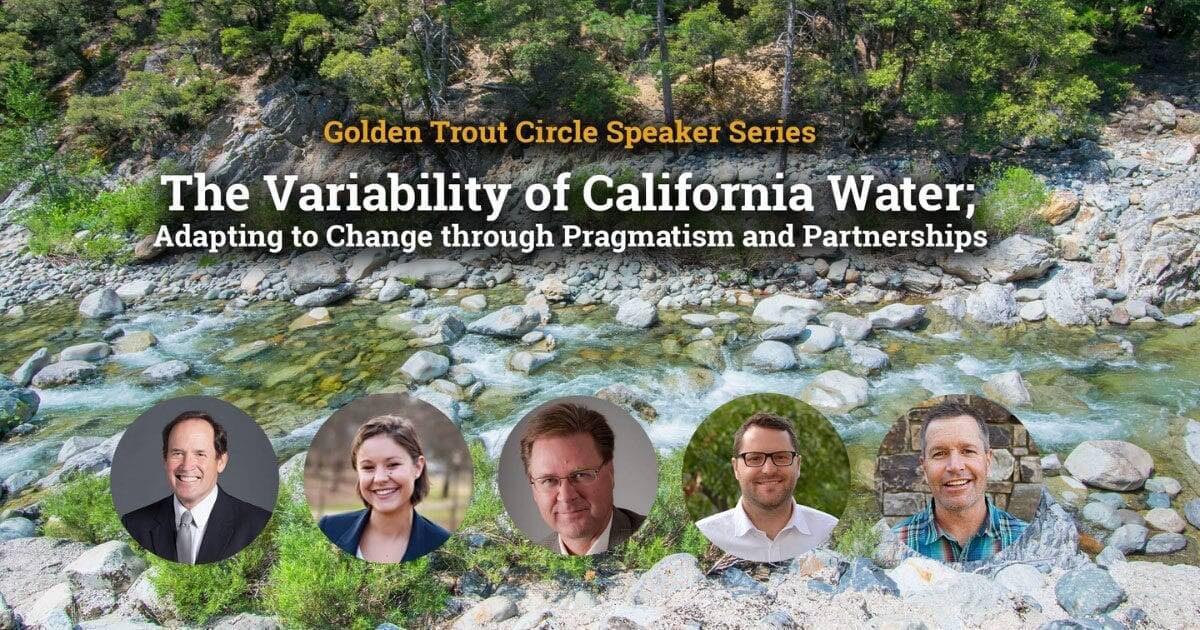The Variability of California Water Speaker Panel
Last week, California Trout invited a diverse panel of experts ranging from policy, science, conservation, and water management to speak about “The Variability of California Water” as part of the Golden Trout Circle Speaker Series.
It’s not often you have four different perspectives represented at the decision-making table but the approach has proven essential to help us better understand all angles when solving complex resource problems. Through pragmatism and partnerships, we have been able to find innovative solutions that are key to adapting to a changing climate.
Executive Director Curtis Knight moderated the discussion opening with a statement about water variations and fluctuations throughout the past years with climate change creating extreme drought years, followed by extreme wet years. The panelists spent the next hour discussing why and how California’s water is changing, and what we can do to ease the effects of climate change.
Panel speakers included:
Dr. Jeff Mount, a Public Policy institute of California Senior Fellow, kicked off the panel session by giving us insight on five impacts that climate change has on water. Jeff Mount is also on CalTrout’s Board of Governors.
Meghan Hertel, Audubon California Director of Land and Water Conservation, spoke about how partnerships between farmers and conservationists can have multiple benefits for fish, birds, and farmers. She is also one of our partners on the Fish Food on Floodplain Farm Fields project.
Grant Davis, Sonoma Water General Manager, offered insight on his priorities as a water manager and helped us understand why certain decisions are made. Sonoma Water is one of our partners on the Potter Valley Project.
Ted Grantham, UC Berkeley scientists and now PPIC and CalTrout Ecosystem Fellow, provided the science perspective and spoke about his work on the Sustainable Groundwater Management Act, environmental flows for fish given through Water Code 5937, and the California Environmental Flows Framework.
Placing these four powerhouses on a panel allowed CalTrout members a front-row seat to the importance of working together and leading with science to implement practical approaches for solving current and future water resource problems. You can watch the discussion in its entirety below and hopefully come away with a deeper understanding of how we can all work together to provide better water and conditions for fish, water, and people.
This event is part of the Golden Trout Circle Speaker Series. If you’d like to know more about how to become a Golden Trout Circle member, please contact Tracey Diaz at 415.392.8887 x103.
Special thanks to Ellen Hanak of PPIC for hosting this event, George Revel and Ben Engle of Lost Coast Outfitters for videography, and Tracey Diaz and the development team at California Trout for hosting.





